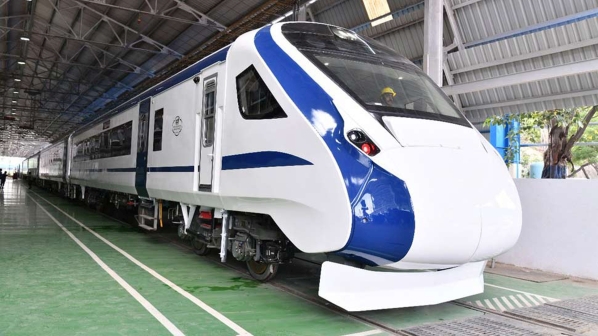Requests for proposals for the contract were opened on July 10 with CRRC the only international player to come forward in a joint venture bid with Pioneer Electrics India. The other bidders for the contract are Bharat Industries, Electrowaves Electronics, Powernetics Equipment India, the state-owned Bharat Heavy Electricals Limited (BHEL) and the Medha Servo Drive.
The tender follows the cancellation of a previous contract to manufacture EMUs in India. Two T-18 trains were manufactured by the Integral Coach Factory (ICF) in Chennai in association with the Medha Servo Drives, which supplied the propulsion systems. The trains entered service last year and have since offered trouble-free service.
However, IR cancelled the contract for further trains, declaring the need for improved competition and a transparent and fair selection process. Fresh tenders were floated in November with the decision of major players not to participate an apparent setback to IR managers.
“Global companies lost interest in the project after IR made unnecessary changes in the tender specifications,” said an official associated with the T-18 project.
For example, according to the new specifications, officials said the selected companies would manufacture propulsion systems along with bogies and braking systems. Representatives from some global firms are understood to have objected to such specifications at pre-bid conferences.
In addition, the tender calls for improved acceleration performance and stipulate that the trains should consume less power. “Such specifications are totally unworkable,” an IR official said. “It is unlikely that Indian companies that have no previous experience in the manufacture of such trains will be able to meet the demands.”
Following recent political tensions with China and the barring of some Chinese companies from working in India, it is unlikely that the IR will proceed with the CRRC Yongji Electric offer.
While IR’s desire to encourage domestic production of semi high-speed trains appears to have run into trouble, the prospects for delivery of similar trains to India remain high. The decision to allow private companies to participate in the operation of passenger services on 109 routes is likely to lead to demand for 151 new trains.
For detailed data on rolling stock orders and global rail tenders, subscribe to IRJ Pro.

